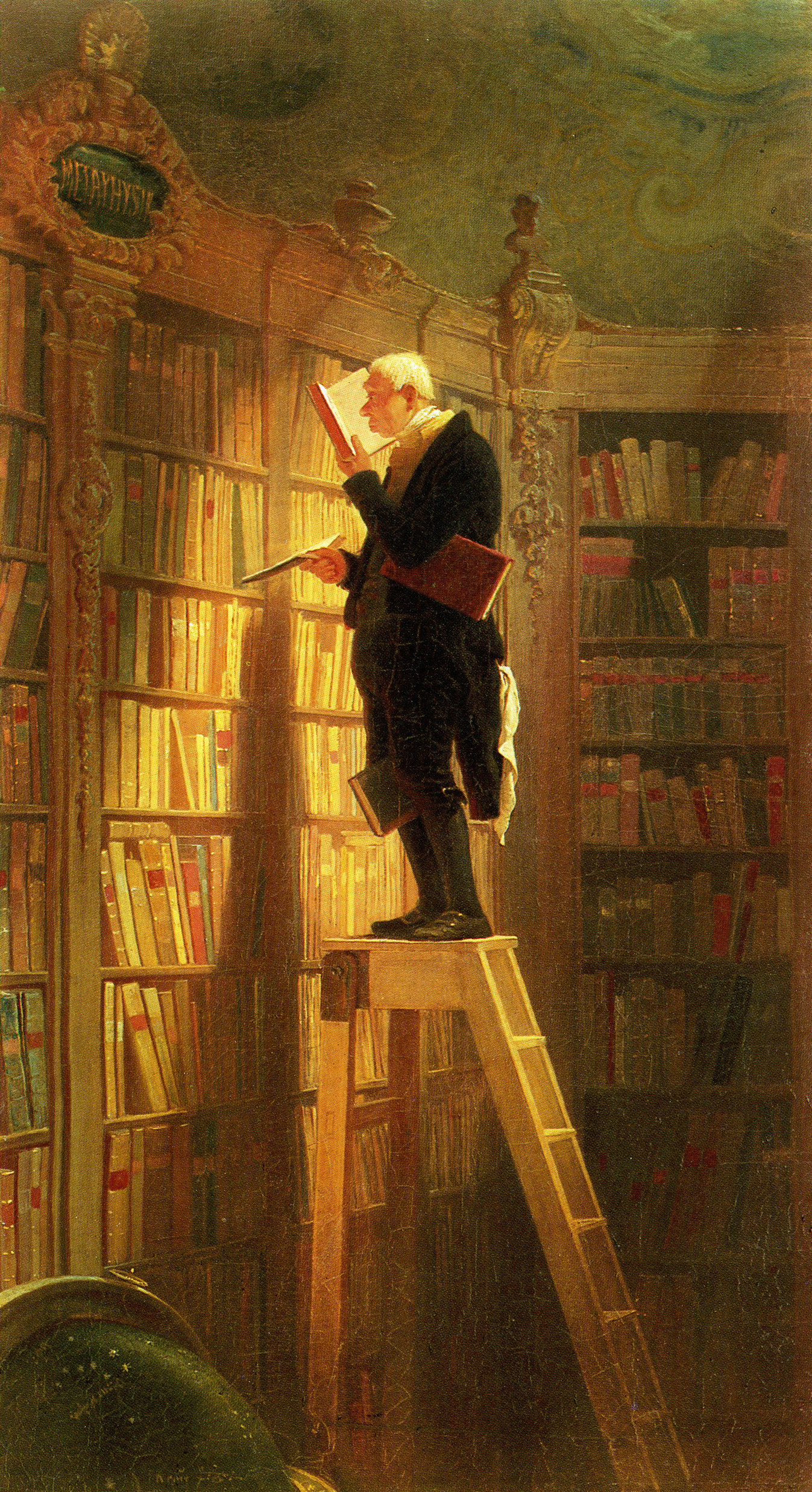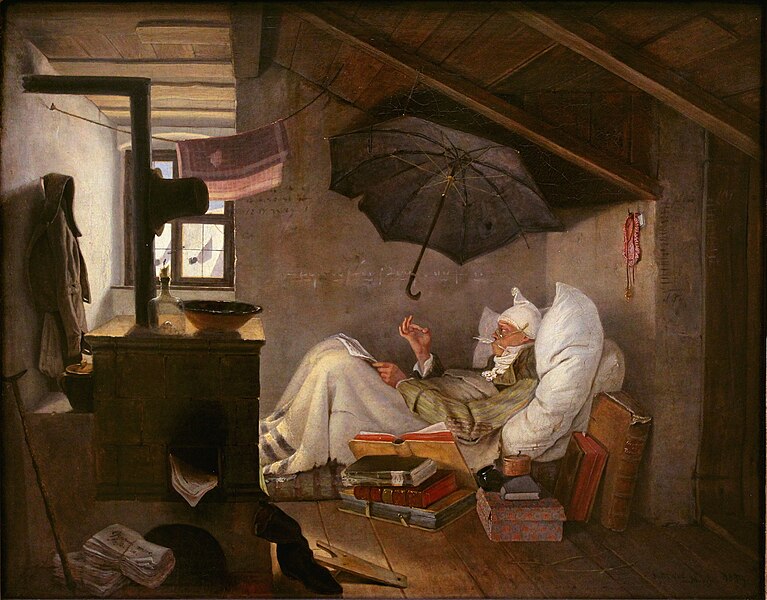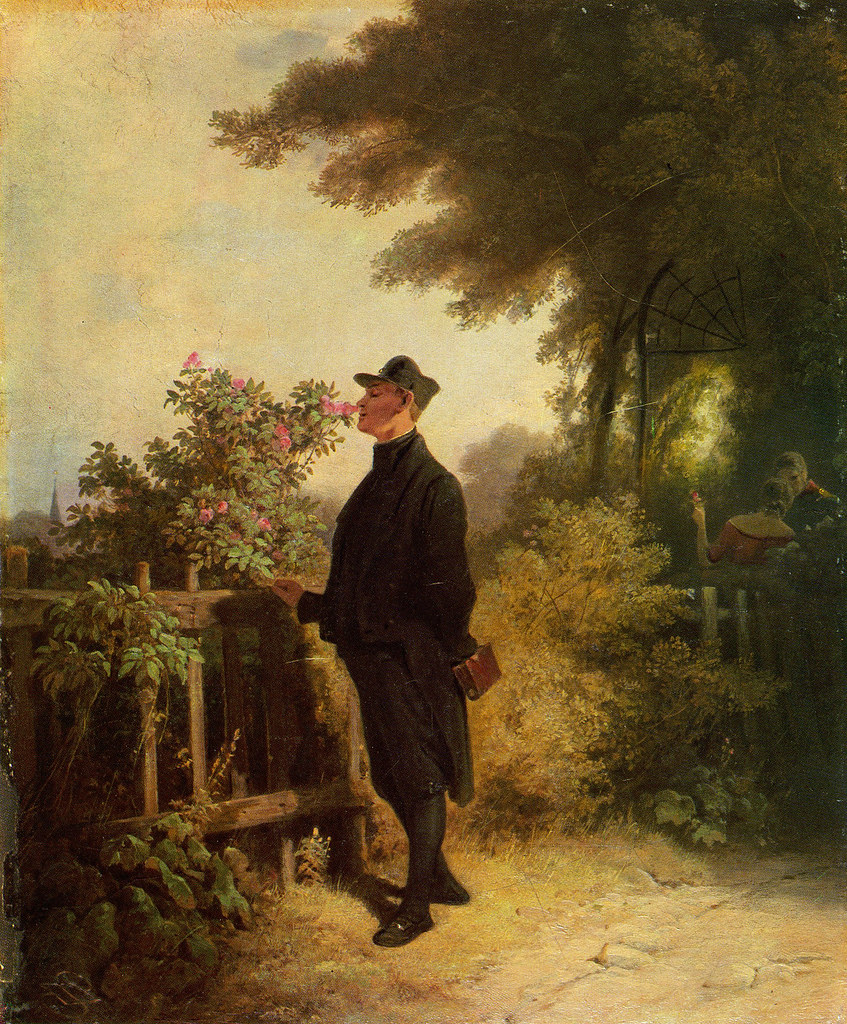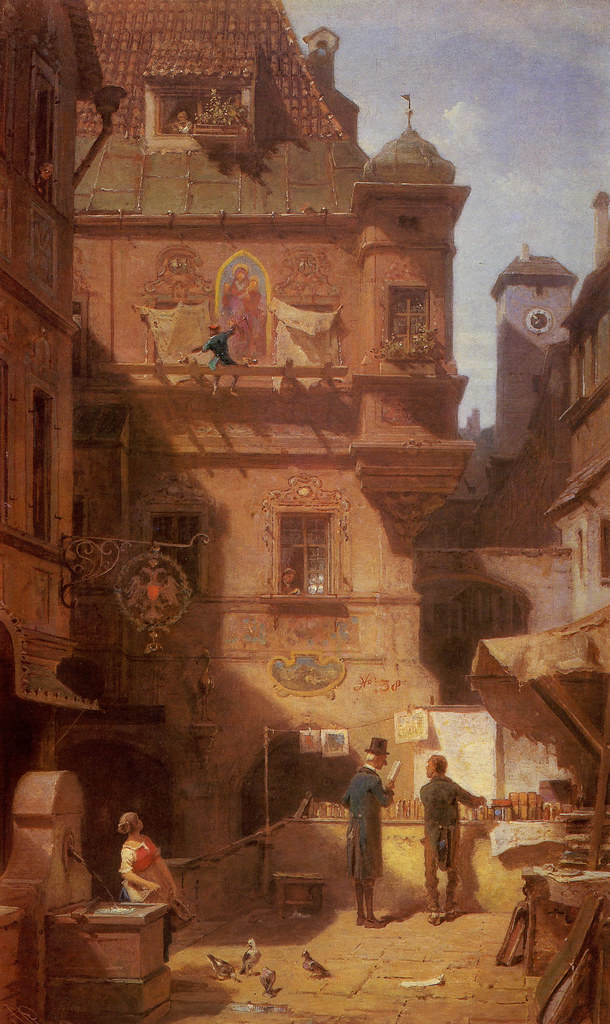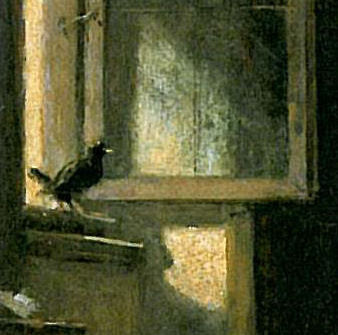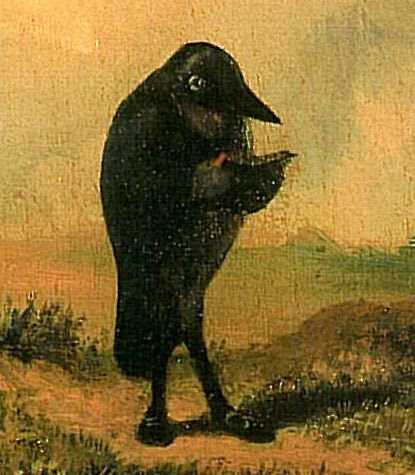.
Black Sabbath: Black Sabbath, Vol. 4, 1972 (American release), album sleeve: photo by Christian Montone, 15 July 2010
Black Sabbath, Vol. 4 (Vertigo)
As the Sabs poured into "Wheels of Confusion" like giant gobs of
wet cement gushing from the heavens in the never-ending sameness of a
taffy-pull performed by mutants, people began pouring into my house. One
by one they instantly began digging the Sabs, nodding, heavy dudes one
and all. Everyone picked up that old Sab neck-wobble trip where your
head sort of rocks back and forth on your neck python-fash, right? Where
the organ comes in over the big slow power chords; no it's not an
organ, call it a component, yah, straight out of the Middle fucking Ages!
Sorta walks right on out. Like some giant prehistoric plant learning
how to walk ... right over your house ... so boogie while you can. But
you can't lose that dyno chthonic zoomout riff 'cos it's right there in
the middle of the next song, "Tomorrow's Dream," which got us so zonked
we felt absolutely heavy. The cat did too. Then on into a foxy
sorta Carole King piano folk song or something, whew, "Changes," kind of
David Bowie we guessed, hey orchestra right? What? Went its evil way?
Ooh. The room got kind of deep and spacey, brown all over, and the notes
then sounded sorta white coming out of that ... y'know? Like a
snowfall? It went on forever. We could dig it. Like we dig chewing gum
made out of caulking compound. Right? So then can you conceive of a
piercing tone followed by reverberating percussion noises called "FX,"
huh, that was the next tune, then we got tight with some heavy familiar
Sab vibes again, swimming right up there to deep space where nothing
hears or talks, right? "Supernaut." My sister had a vision of electronic
buffalo ranches on Uranus, so help me. The drum solo in this song did
it to her. Also, my watch stopped. But the Sabs didn't. Who needs a
watch? I ripped it off my wrist & stomped on it. Slowly. Crunch.
Side one groaned to a close, but soon side two followed it, without
delay adhering to the walls of one's septum — the total "icicles in my
brain" riff — right — "Snowblind," no less — climbing those big
staircases made out of vanilla fudge, right up into your mind — so feed your nose, hey? God's a Fuzz Tone, right? The Abominable Snowman? Hey. La Fucking Brea!
The tar pits was a heavy scene, right? Ask Freud or Dave Crosby. What a
streaming feast of nerve gobble anyhow! But on with the snow, I mean
show. Time for a Pez break. Whew. Monster slowness of the unelusive
strikes again: "Cornucopia." I about fell out. Ten-ton dogs snarled in
the mouth of the volcano. Storms of liquid metal blasted their way into
the soap factory. Soaring zoos, etc. Then on to babies' time; breakfast
on a sleigh in Hawaii with violins, titled "Laguna Sunrise." All sweet
lime stripes across a popsicle spiced with Quaaludes, right. A million
artichokes can't be wrong. Dreaming in the sun with their eyes open?
Sweet music must end. Grunting, we tumble on into the new dance craze,
you guessed it, "St. Vitus Dance." You drive me nervous. Pieces of hair
got into my mouth during this one. Same old power saw on Venus move,
lovely. "Under the Sun" starts out slow, like dinosaurs yawning, then it
speeds up a little. Or does it? I can't tell. Fantastic four-second
guitar solo by a gorilla in there somewhere, right — beautiful — gorilla!
The Sabs pour it on, man, it's right near the end of the record now and
here's a great three-second drum solo by a polar bear, no shit! Put mud
in my ears if I lie! I can dig it! Great buncha chords there too, I
couldna chose better myself, whew, we're thudding down toward the
ultimate rip chord now. Gotcha. Over and out. Molten rocks hurtling
across space imitating the origin of the universe, you dig? Ah, lay
those chord slabs on my grave ... whew. The Sabs are genius.
Tom Clark: My Black Sabbath Party, a review of Black Sabbath, Vol. 4 (Vertigo, 1972), Rolling Stone, 7 December 1972

Black Sabbath: Tomorrow's Dream/Laguna Sunrise, 1972 (German single release, Vertigo), record sleeve: photo by Klaus Hiltscher (Affendaddy), 8 October 2012
I
wish I could tell you that every word of the above is (or was) true.
Then again, I also wish that I could tell you that every word isn't (or wasn't).
My
career as a record reviewer was, as they say, short-lived, and really
not all that much fun while it lasted, despite the surprising daily
arrival of abundant vinyl freebies in the broken mail box on a dirt road
in the then-middle of Nowhere.
Of
course the freebies stopped once the reviews began to appear.
Industries are like that. Don't ever expect an honest review of anything
from anybody who's in the industry. Doesn't matter which industry we're
talking about here, in my experience they're all the same in this
respect. That's entertainment, like they used to say. Not that it's all
that complicated, duh. Everybody on the free stuff list is always in the
industry, whichever industry it is. Until they aren't. I wish I could
count all the lists from which I've been stricken. But then, I've been
stricken with worse, in this slow, inexorable, quicksand-vertiginous
swirling-down-the-blocked drain of the completely meaningless Vertigo
reissue years.
This particular record, by the by, was probably the worst I was ever given to review.
The review adopted the point of view of a fictive persona assembled from several suspects of the period.
But
don't just take my word on this as the last, though indeed it may well
have been the first, given that time is now known to have traveled more
slowly in that stage of the deglaciation.
 Ragnarok at Blackrock: Led Zeppelin VS Black Sabbath... who wins you decide [Blackrock, Brighton, UK]: photo by Wang Dang Doodad, 10 July 2011
Ragnarok at Blackrock: Led Zeppelin VS Black Sabbath... who wins you decide [Blackrock, Brighton, UK]: photo by Wang Dang Doodad, 10 July 2011
The largest collection of
cassettes I have seen in 30 years is upstairs at That '70s House in
Penrose, Illinois. Black Sabbath, the Beastie Boys, the Ramones and Bauhaus are
standard fare here, but there is some variety with the Beatles and INXS
also represented. A large selection of LPs are "stored" downstairs...: photo by Bill (BillsExplorations), 13 December 2012

Black Sabbath, Vol. 4 (Vertigo, 1972): photo by Greg(ory), 3 December 2012




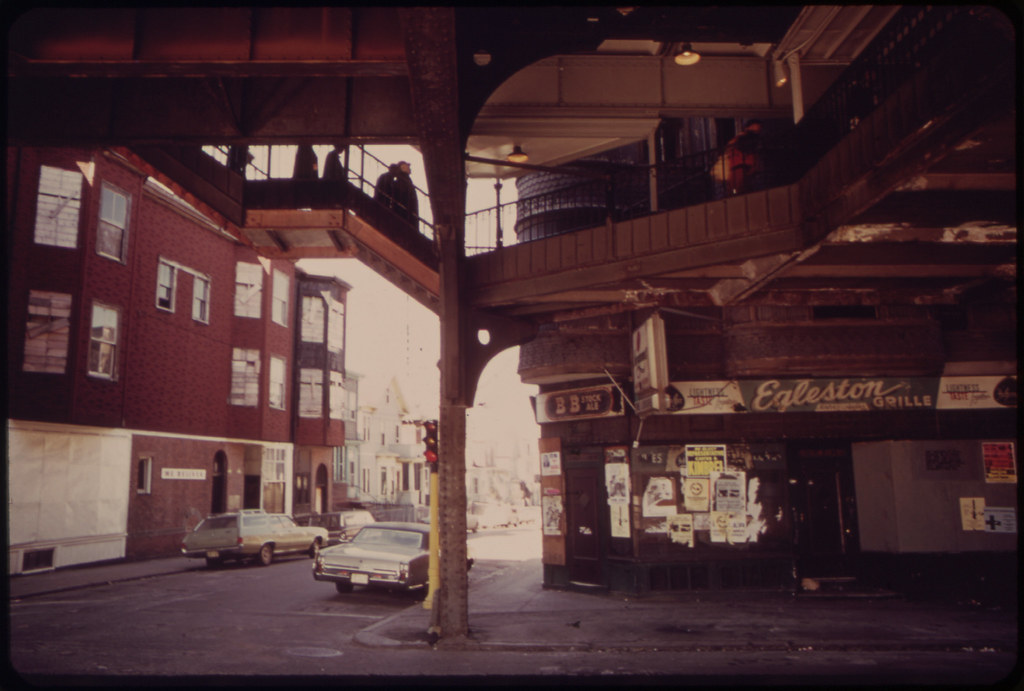
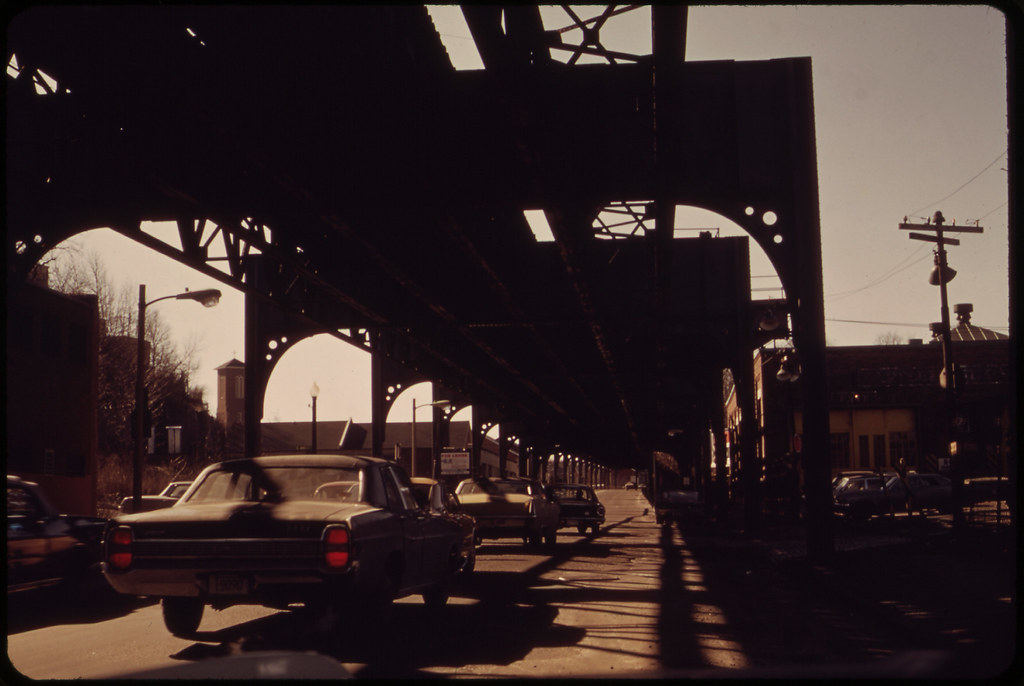



![[Reading+the+Breviary,+The+Evening.jpg]](https://blogger.googleusercontent.com/img/b/R29vZ2xl/AVvXsEjFajhhZB6E8D_v9vs6plV5xvLbYWV7WaK_mFHUfWxOt-LgpdCYYIOm7YzTYAoik7dTamaLZuC3nKgvtN_Vg0fMLq4oX1u-AKu1KZzgHEsMla4JKexTAmAJcWvae24_aIHQOqv6IqCzc6DT/s1600/Reading+the+Breviary,%2BThe%2BEvening.jpg)
